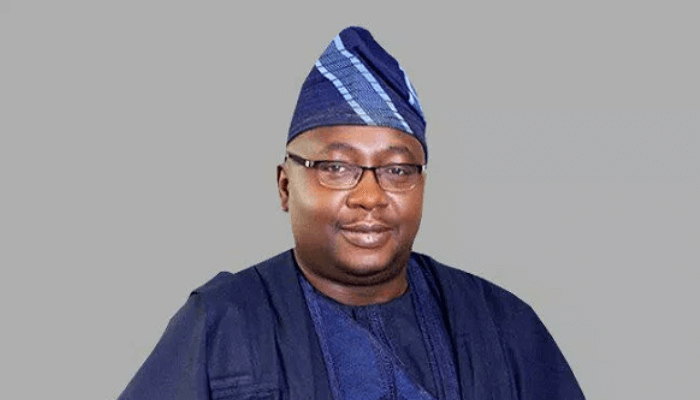… as 48% electricity generated unpaid
Nigeria’s power sector is facing a significant financial challenge, with a shortfall of N1.6 trillion in wholesale tariffs, according to Adebayo Adelabu, Nigeria’s minister of power.
This revelation raises concerns about the sustainability of the sector and its ability to deliver reliable electricity to Nigerians.
“One major challenge is the non-cost reflective tariff, hindering DISCOs from meeting revenue targets and investing in reducing technical, commercial, and collection losses (ATC&C). Currently, there’s a significant NGN1.6 trillion shortfall in wholesale tariffs, with an industry average ATC&C loss of 48%, indicating that nearly half of the electricity generated is not paid for due to technical issues, theft, and inefficiencies in billing and collection processes,” Adelabu wrote this via his official Twitter account, referencing his press conference on February 14.
Adelabu underscored a significant obstacle, pointing out that the non-cost reflective tariff is impeding distribution companies (DisCos) in achieving revenue goals and making investments to reduce ATC&C losses.
He noted that the recent power disruptions across Nigeria stem from the inability of major players in the Nigerian Electricity Supply Industry (NESI) to settle old and current debts, causing a broken system where Gas Companies (GasCos) withhold gas supply from Generating Companies (GenCOs).
The minister further stated that, in partnership with the Ministry of Finance, Budget and Economic Planning, and the office of the Special Adviser on Energy to the President, they are proactively tackling the significant unpaid debts owed to both GenCos and gas suppliers, which involves a strategic approach, combining cash injections and assured debt instruments.
“Investments in upgrading aging infrastructure, expanding capacity, and deploying advanced technologies through the Siemens-backed Presidential Power Initiative (PPI) are underway. Several power generation projects, including the completion of the 700MW Zungeru Hydro Electricity Power Plant in Niger NEWS Customs intercept 15 trucks of food items in Sokoto NEWS BUA announces 50% salary increment for staff NEWS LASG cracks down on illegal construction, seeks safer city compliance NEWS NEMA distributes relief materials in Plateau attacked communities NEWS News Opinion Lifestyle Sports Women GuardianTV x State, are progressing. Financing arrangements for the 40MW Kashimbila Hydro Power Plant in Taraba state are being finalized. We’re reviving 26 small and medium-sized hydro plants with solar hybridisation and completing a 20MW Wind/Solar hybrid power plant in Katsina state,” he said.
Also, the minister mentioned that initiatives are underway to boost the operational capability of NIPP power plants within the Niger Delta Power Holding Company, aiming for at least 50 per cent capacity. Adelabu noted that prioritising the acceleration of vital power projects such as the Siemens Project to improve transmission capacity, is a priority with ongoing discussions with two Chinese firms for EPC+F super grid projects crucial for offering failover and backup capacity to the National grid.
“Initiatives to modernise and strengthen existing transmission infrastructure, including upgrading substations and power lines, are in progress. Projects for reconductoring aging transmission power lines are being initiated for enhanced efficiency and reliability. Intervention projects funded by multilateral development partners, such as the World Bank, AfDB, and JICA, are expedited to address critical transmission challenges.”
“Additionally, fair and competitive regulation efforts have resulted in significant fines for non-compliant DISCOs and refunds to over-billed customers, bolstering reliability and resilience in our electricity supply infrastructure. We’re committed to improving communication and navigating challenges together to deliver reliable and accessible electricity to every corner of the nation,” he said.

